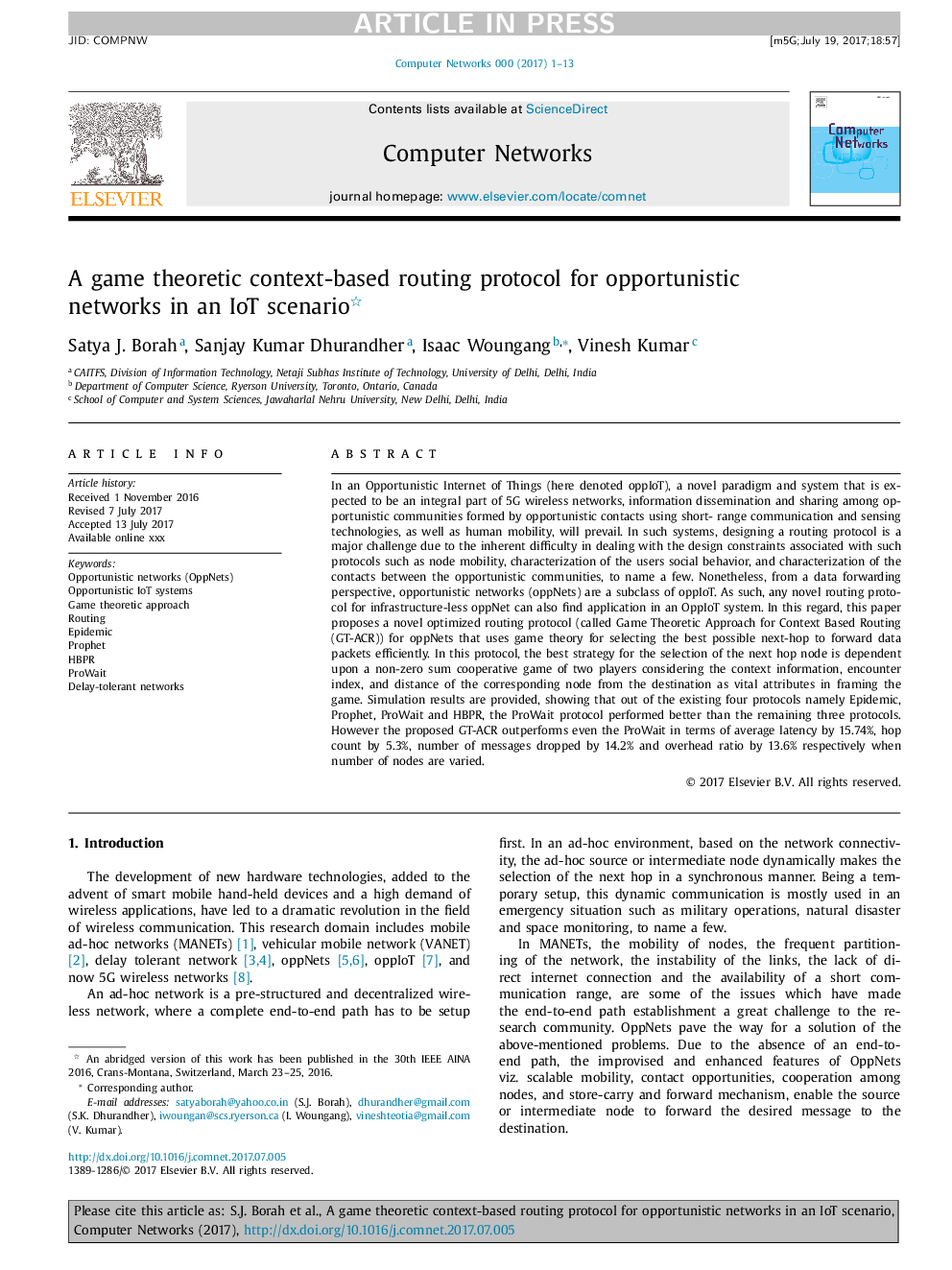| کد مقاله | کد نشریه | سال انتشار | مقاله انگلیسی | نسخه تمام متن |
|---|---|---|---|---|
| 6882844 | 1443890 | 2017 | 13 صفحه PDF | دانلود رایگان |
عنوان انگلیسی مقاله ISI
A game theoretic context-based routing protocol for opportunistic networks in an IoT scenario
دانلود مقاله + سفارش ترجمه
دانلود مقاله ISI انگلیسی
رایگان برای ایرانیان
کلمات کلیدی
موضوعات مرتبط
مهندسی و علوم پایه
مهندسی کامپیوتر
شبکه های کامپیوتری و ارتباطات
پیش نمایش صفحه اول مقاله

چکیده انگلیسی
In an Opportunistic Internet of Things (here denoted oppIoT), a novel paradigm and system that is expected to be an integral part of 5G wireless networks, information dissemination and sharing among opportunistic communities formed by opportunistic contacts using short- range communication and sensing technologies, as well as human mobility, will prevail. In such systems, designing a routing protocol is a major challenge due to the inherent difficulty in dealing with the design constraints associated with such protocols such as node mobility, characterization of the users social behavior, and characterization of the contacts between the opportunistic communities, to name a few. Nonetheless, from a data forwarding perspective, opportunistic networks (oppNets) are a subclass of oppIoT. As such, any novel routing protocol for infrastructure-less oppNet can also find application in an OppIoT system. In this regard, this paper proposes a novel optimized routing protocol (called Game Theoretic Approach for Context Based Routing (GT-ACR)) for oppNets that uses game theory for selecting the best possible next-hop to forward data packets efficiently. In this protocol, the best strategy for the selection of the next hop node is dependent upon a non-zero sum cooperative game of two players considering the context information, encounter index, and distance of the corresponding node from the destination as vital attributes in framing the game. Simulation results are provided, showing that out of the existing four protocols namely Epidemic, Prophet, ProWait and HBPR, the ProWait protocol performed better than the remaining three protocols. However the proposed GT-ACR outperforms even the ProWait in terms of average latency by 15.74%, hop count by 5.3%, number of messages dropped by 14.2% and overhead ratio by 13.6% respectively when number of nodes are varied.
ناشر
Database: Elsevier - ScienceDirect (ساینس دایرکت)
Journal: Computer Networks - Volume 129, Part 2, 24 December 2017, Pages 572-584
Journal: Computer Networks - Volume 129, Part 2, 24 December 2017, Pages 572-584
نویسندگان
Satya J. Borah, Sanjay Kumar Dhurandher, Isaac Woungang, Vinesh Kumar,